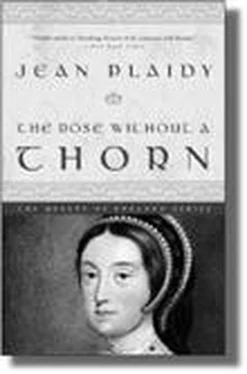Jean Plaidy - Mary, Queen of France - The Story of the Youngest Sister of Henry VIII
Здесь есть возможность читать онлайн «Jean Plaidy - Mary, Queen of France - The Story of the Youngest Sister of Henry VIII» весь текст электронной книги совершенно бесплатно (целиком полную версию без сокращений). В некоторых случаях можно слушать аудио, скачать через торрент в формате fb2 и присутствует краткое содержание. Жанр: Старинная литература, на русском языке. Описание произведения, (предисловие) а так же отзывы посетителей доступны на портале библиотеки ЛибКат.
- Название:Mary, Queen of France: The Story of the Youngest Sister of Henry VIII
- Автор:
- Жанр:
- Год:неизвестен
- ISBN:нет данных
- Рейтинг книги:4 / 5. Голосов: 1
-
Избранное:Добавить в избранное
- Отзывы:
-
Ваша оценка:
- 80
- 1
- 2
- 3
- 4
- 5
Mary, Queen of France: The Story of the Youngest Sister of Henry VIII: краткое содержание, описание и аннотация
Предлагаем к чтению аннотацию, описание, краткое содержание или предисловие (зависит от того, что написал сам автор книги «Mary, Queen of France: The Story of the Youngest Sister of Henry VIII»). Если вы не нашли необходимую информацию о книге — напишите в комментариях, мы постараемся отыскать её.
Mary, Queen of France: The Story of the Youngest Sister of Henry VIII — читать онлайн бесплатно полную книгу (весь текст) целиком
Ниже представлен текст книги, разбитый по страницам. Система сохранения места последней прочитанной страницы, позволяет с удобством читать онлайн бесплатно книгу «Mary, Queen of France: The Story of the Youngest Sister of Henry VIII», без необходимости каждый раз заново искать на чём Вы остановились. Поставьте закладку, и сможете в любой момент перейти на страницу, на которой закончили чтение.
Интервал:
Закладка:
Mary was uneasy when she heard this and called to Charles to walk with her alone in the gardens of Westhorpe that she might discuss this new development.
“He is nine years old,” said Charles, “and therefore it is time that some honor was his. We should rejoice that your brother remembers him.”
“I do not welcome Henry’s interest in the boy,” replied Mary. “He will want him to be brought up at Court and that means we shall lose him. Perhaps it was a mistake to call him Henry.”
“But, Mary, we should not be displeased because the King honors our son.”
“I am beginning to be fearful of Henry.”
“You fear too much for your children, my love.”
“I would that I could keep you all safe at Westhorpe. You see it is so easy to offend Henry now, and when he is offended one cannot be sure what he will do. He is brooding on some matter, I feel sure, and it has changed him.”
“Let him brood,” smiled Charles. “Now we should call the boy and prepare him for what is about to happen to him.”
Young Henry was delighted at the prospect of going to Court, and the girls were envious. When the party rode out of Westhorpe for London the boy was beside his father and they chattered gaily of what was in store for him. Mary, watching them, delighted in their health and spirits, yet her very pleasure in them frightened her.
Her fears were not dispersed when she reached Greenwich, for there she discovered that the honor bestowed on her little son was not the main reason for the great festivities which had been arranged.
Henry Brandon was only one of the boys to be honored on this occasion; a matter of much greater significance was being settled. Henry Fitzroy, the King’s son by Elizabeth Blount, was to be given the royal title of Duke of Richmond, and Mary understood too well what this meant.
The King, despairing of getting a legitimate son, had decided to acknowledge his illegitimate one. Did this mean that he was prepared to make Henry Fitzroy the heir to the crown?
There must be feasting, balls and masques to celebrate the elevation of this boy who, the King would have his people know, was very close to his heart.
This was understandable, thought Mary; but what seemed to her so grossly cruel was that Katharine should be commanded to attend these celebrations. What must she feel to see her husband’s bastard so honored, and herself, unable to give him a son, forced to honor him? Where was the sentimental Henry of her childhood? thought Mary. He had certainly changed.
Poor Katharine, what would her fate eventually be?
What, wondered Mary, might be the fate of any of us who cease to please him—as she has ceased to?
They were riding into the arena—two giants who were the tallest men at Court. Mary sat beneath the canopy on which were embroidered her own symbol, the marigold together with the golden lilies of France. Beside her was Katharine, on her canopy the emblem of the pomegranate. Poor sad Katharine, how ironic that her emblem should be the Arabic sign of fertility!
But Mary had no thought for her sad sister-in-law now, for Charles and Henry had been the champions and it was time for them to meet.
She knew her Charles. He loved to joust and show his skill. There was a temptation every time he faced an opponent to do his utmost to win. And he could win easily. She knew it and she trembled.
“How well matched they are,” said Katharine, forcing a smile to her pale lips. “There is no one else who can match the King.”
“And Charles must not either,” murmured Mary.
Katharine had glanced at her clenched hands and understood. In that moment there was a deep sympathy between them; they were two frightened women.
Suddenly there was a shout. Katharine and Mary simultaneously rose in their seats.
“The King has not lowered his visor …,” cried Katharine.
Mary stared in horror, for Charles was riding toward Henry, his lance in his hand pointing toward the King’s forehead; and Charles, whose headpiece prevented him from seeing how vulnerable was the King, was advancing at speed.
“Charles! Stop!” cried Mary.
The crowd of spectators were shouting but Charles thinking they were applauding the King and himself, did not understand the warning.
His lance struck Henry’s helmet, a matter of inches away from his exposed forehead; it was shattered and only then did Charles realize how near he had come to killing the King.
Katharine put an arm about Mary. “All is well,” she whispered. “The King is unharmed.”
Henry came into the banquet hall, his arm about Charles’s shoulder. The trumpets sounded; the company rose and cheered.
Henry was happy. This was a scene such as he loved: The drama which had a happy ending, with himself as the hero!
He took his place at the table and cried: “This fellow all but killed his King this afternoon. He tells me he will never joust against me again. Methinks he suffered from the affair more than I!”
How bland he was, how blue the little eyes, asparkle with good humor, but ready at any moment to send forth the fire of anger; the thin lips were smiling but everyone was beginning to learn that they could curl in sudden anger.
“Nay, my brother,” he said, smiling at Charles. “We know that, had your lance entered this head, you would have been the most unhappy man in England this day. We know our friends. And I say to you, I hold this not against my brother, for the fault was mine. So eager was I to ride against him that I forgot to lower my visor. I could not have his head for that, could I, my friends?”
There were cheers and laughter.
Charles was shaken; yet not more so than Mary.
The King’s eyes might glisten while the suckling pig was piped to the table, he might command that one of his own songs be sung, he might smile benignly at the company when they applauded his music; but there were three very uneasy people at the banquet that night, and they were his nearest—his wife, his sister and his brother-in-law.

The Last Farewell
GOSSIP WAS RIFE, not only at Court but throughout the country. Even in the village of Suffolk there was whispering of the King’s Secret Matter.
Those days seemed too short for Mary; she wanted to catch them and make them twice as long. She had lost some of her health recently and had discovered a tendency to catch cold, leaving her with an ague and a cough which would not go. Charles was anxious because of her health and to relieve his fears she pretended that she felt as well as ever.
She often wondered what was happening at Court. At least there were not the same demands for her and Charles’s attendance there. There was a new set about the King—bright young people, clever young people who devised plays and masques of much wit for the King’s amusement. The leaders of this set were, strangely enough, her one-time maid of honor, Anne Boleyn, Anne’s brother George, and Thomas Wyatt.
It was pleasant to be left in peace.
Mary felt more and more remote from the Court, but she knew now that Henry was trying to cast off Katharine, and there were rumors that he was so enamored of Anne Boleyn that he wished to make her his Queen.
Mary was angry; she had been so fond of Katharine, although often irritated by her mildness; she believed that if she went to Court she would be unable to avoid quarreling with her brother; and he was in no mood for opposition.
Had she felt well she might have gone to Court, because she did want to comfort Katharine and tell her that she would always support her against that upstart maid of honor.
Читать дальшеИнтервал:
Закладка:
Похожие книги на «Mary, Queen of France: The Story of the Youngest Sister of Henry VIII»
Представляем Вашему вниманию похожие книги на «Mary, Queen of France: The Story of the Youngest Sister of Henry VIII» списком для выбора. Мы отобрали схожую по названию и смыслу литературу в надежде предоставить читателям больше вариантов отыскать новые, интересные, ещё непрочитанные произведения.
Обсуждение, отзывы о книге «Mary, Queen of France: The Story of the Youngest Sister of Henry VIII» и просто собственные мнения читателей. Оставьте ваши комментарии, напишите, что Вы думаете о произведении, его смысле или главных героях. Укажите что конкретно понравилось, а что нет, и почему Вы так считаете.












